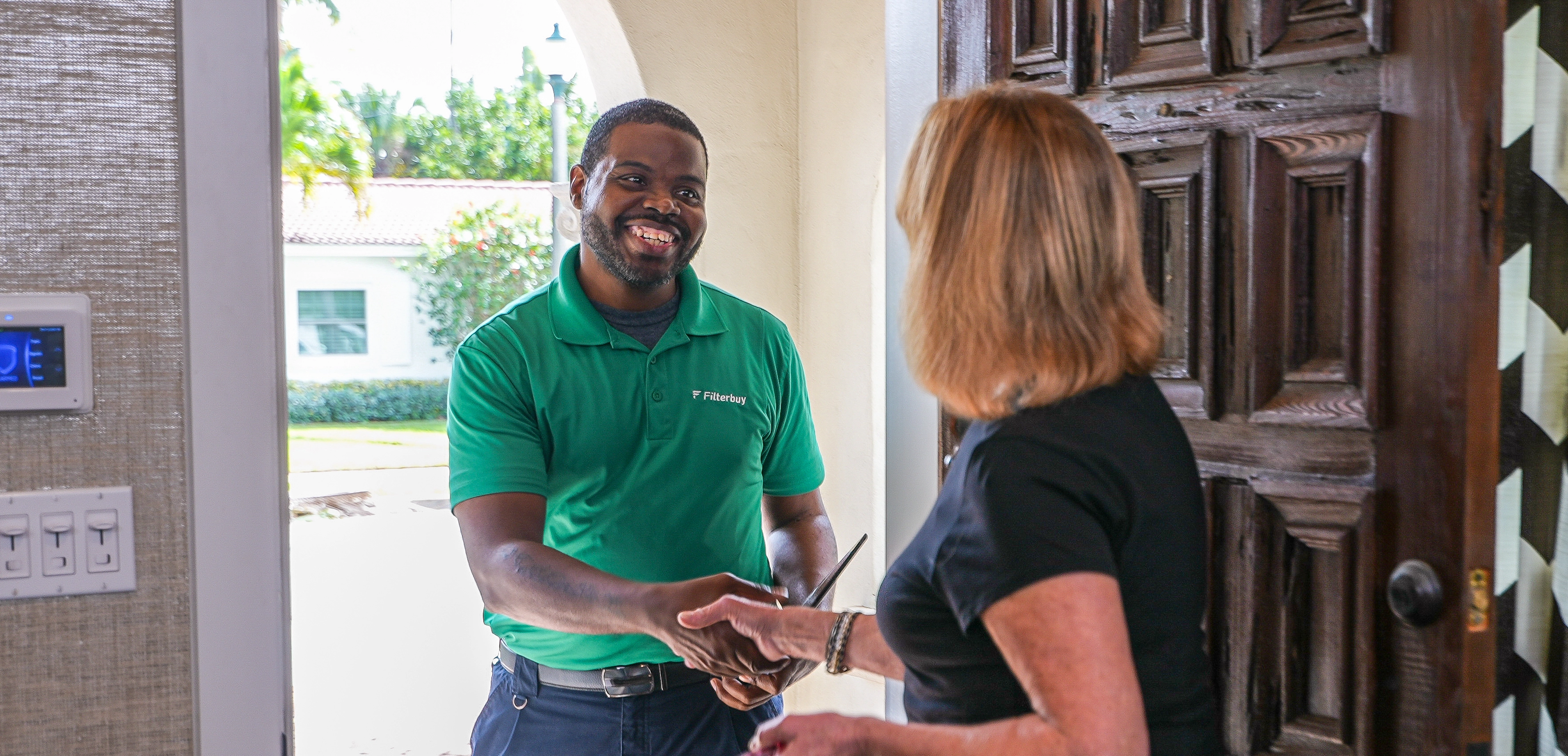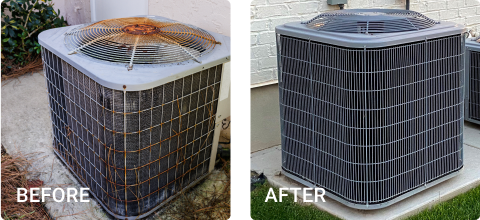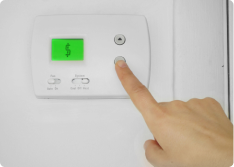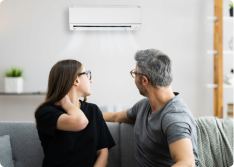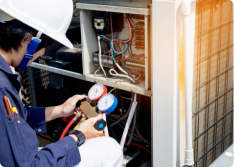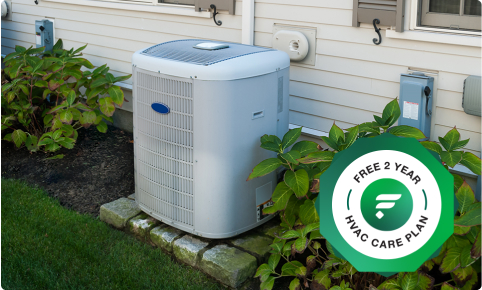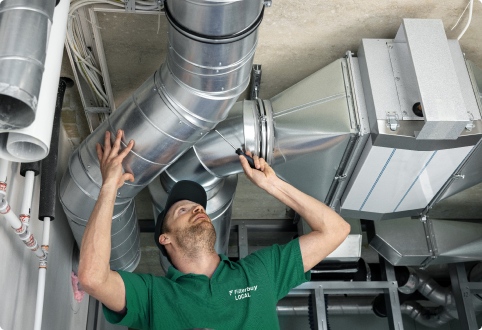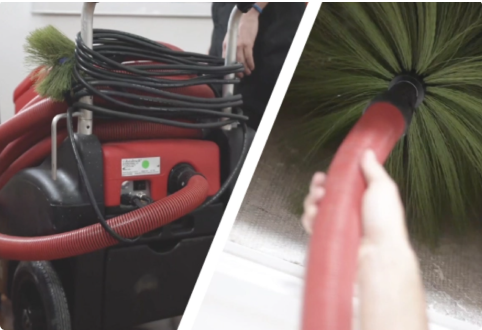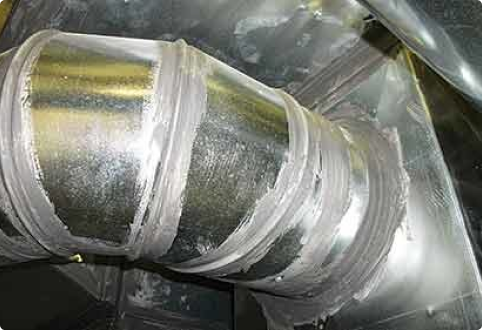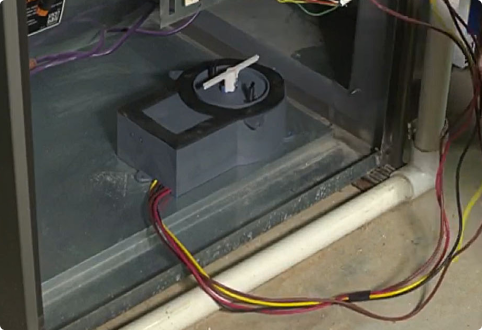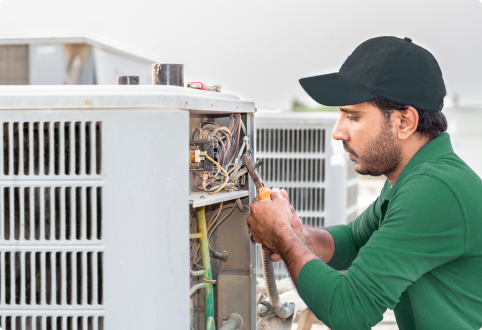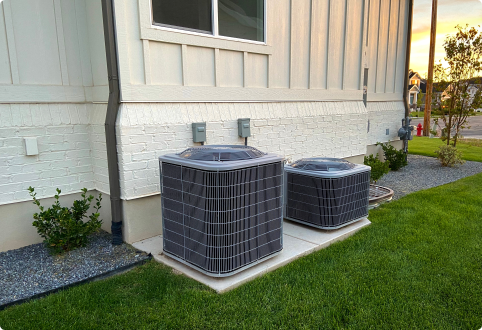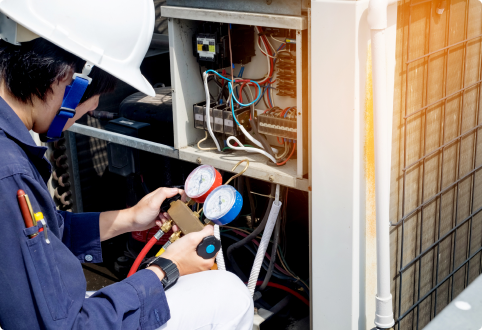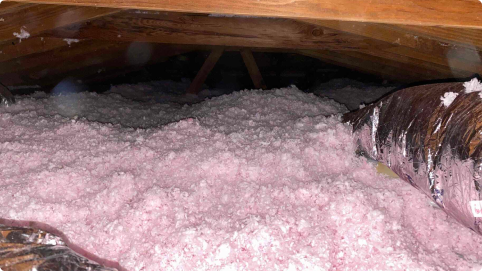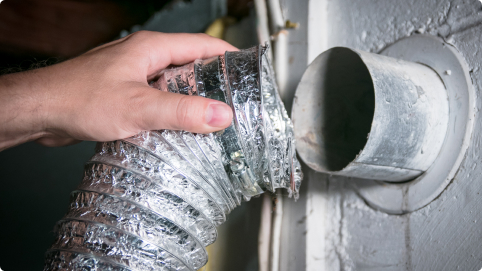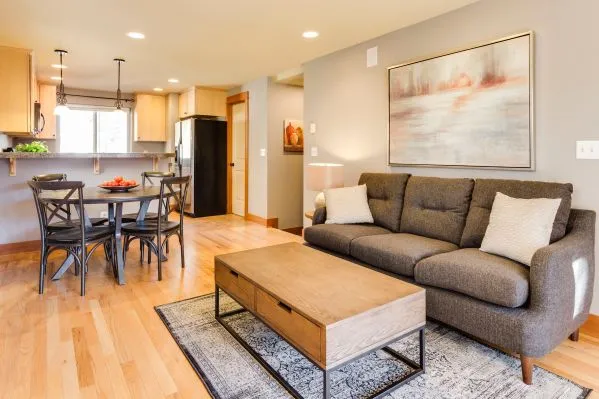Welcome to Filterbuy Local, the best HVAC system installation service company proudly serving in and near the greater Opa Locka, FL area. Please let us know how we can help solve your Opa Locka HVAC system installation needs with professional, affordable, and fast residential and commercial HVAC services by getting a free online quote or by giving our friendly HVAC specialists a call. We look forward to hearing from you!
HVAC Installation Opa Locka FL
HVAC installation in Opa Locka, FL is an important undertaking for many residential and commercial properties. From energy efficiency to air quality, the importance of proper HVAC installation cannot be overstated. Individuals or businesses who are looking to install a new system must choose a qualified professional with the experience necessary to ensure successful installation. This article will discuss the process of HVAC installation in Opa Locka, FL, and what factors should be considered when seeking out a contractor for the job.
The selection of an appropriate HVAC system for a given property depends on several individual characteristics such as size, usage, and climate conditions present within the building’s environment. An expert must evaluate these criteria as well as any existing structures such as ductwork before they can determine which type and model of heating/cooling device would best suit each particular situation. The right unit must also be correctly sized to maximize performance and minimize operational costs.
In addition to selecting an appropriate system, professionals must adhere to all local code requirements while completing their work. Depending on the scope of the project, this could involve inspections by government officials or other entities before completion. Quality control measures must also be taken during every stage of construction so that safety standards are met and customer satisfaction is achieved. These topics will further be addressed throughout this article.
Types Of HVAC Systems
HVAC systems come in a variety of styles and sizes, all designed to provide comfortable temperature control for residential or commercial buildings. While the prospect of installing an HVAC system may appear daunting, it is important to note that professional installation offers numerous benefits that make it well worth the effort.
The most common type of HVAC system is a split-system air conditioner/heat pump, which uses two components: an outdoor unit and an indoor unit. The outdoor unit houses the compressor while the indoor unit contains a fan coil and evaporator coils. In addition, some systems include zone controllers and thermostats, allowing homeowners to customize their climate settings in individual living spaces.
Other types of HVAC systems can also be used depending on your needs; these include geothermal heat pumps, ductless mini-split systems, gas furnaces with electric cooling, and portable air conditioners. No matter what kind of system you choose to install, having a knowledgeable technician guide you through every step ensures proper installation so that your home’s energy efficiency remains optimal for years to come. Moving into the next section about the 'benefits of the professional installation', we see how this knowledge can save money in more ways than one.
Benefits Of Professional Installation
Professional installation of an HVAC system offers numerous benefits to homeowners. From improved energy efficiency and cost savings to superior comfort control, many advantages come with professional service. Here are some of the key benefits:
• Increased Energy Efficiency: Professional installers will ensure that your system is properly sized for your home or building and correctly installed to maximize its performance. This can help you save money on utility bills while also reducing the amount of wear and tear on the system over time.
• Cost Savings: An experienced technician can provide advice on how best to select a suitable unit based on size, type, brand, features, etc., which could result in significant savings when compared to buying more expensive models. Additionally, having professionals take care of any necessary repairs or maintenance means fewer headaches down the road in terms of costly breakdowns.
• Superior Comfort Control: With specialized tools and training, technicians can make sure that all components of your system work together seamlessly so that you always remain comfortable throughout the year regardless of outdoor temperatures. Plus, they'll be able to identify potential problems before they become serious issues preventing further damage from occurring.
By investing in professional installation services for your HVAC system, you’ll have peace of mind knowing that it’s been set up optimally for long-term use and efficient performance—allowing you to enjoy greater comfort levels at home without breaking the bank. Moving onto our next section about 'factors to consider when choosing an HVAC system', we look into what kind of considerations should be taken into account beforehand.
Factors To Consider When Choosing An HVAC System
Choosing the right HVAC system for your home or building can be a difficult task. There are numerous factors to consider that will determine whether or not you get the best performance out of your unit, including:
1) Size: The size of the system must match up with the area in which it is being installed. If it’s too big, it could struggle to keep up with demand and cause energy bills to skyrocket; if it’s too small, it won't be able to heat or cool effectively.
2) Type: Depending on where you live, there are different types of systems available such as Forced Air Systems (FAS), Heat Pump Systems (HPS), Ductless Mini-Split Systems (DMS), and Geothermal Heating & Cooling Systems (GHC).
3) Brand: Different brands offer varying levels of efficiency and various features so researching them beforehand is crucial.
4) Cost: It's important to factor cost into any decision when choosing an HVAC system as some units may include additional features like zoning capabilities or smart technology that increase their price significantly.
It's essential to know exactly what kind of climate control requirements you have before purchasing this will help narrow down your options considerably and ensure you select the perfect unit for your needs. With careful research and thought put into each step, homeowners can enjoy improved comfort levels while also saving money on utility costs in the long run. Now let's look at how much one should expect to spend when opting for professional installation services.
Cost Of Installation
Having the right HVAC system is only half the battle. The other half involves getting it installed correctly to ensure optimal performance and efficiency. When considering installation services, several key factors will affect the overall cost:
• Labor costs: Installation labor usually accounts for up to 40% of the total price tag; this includes all materials used by contractors like wiring, piping, tubing, and ductwork as well as time spent connecting components and checking systems for functionality.
• Equipment/materials costs: This covers any necessary parts or supplies required to complete the job such as air filters, thermostats, insulation material, registers, dampers, etc.
• Permit fees: Depending on local regulations in your area, you may be responsible for paying permit fees along with additional taxes or surcharges associated with installing a new unit.
• Setting up utility connections: If you need to have utilities connected for your HVAC system (e.g., gas lines), then expect an added charge from your contractor.
All these elements must be taken into consideration when budgeting for professional installation services in OPA Locka FL. It’s important to get quotes from multiple companies before deciding who should do the work so you can compare prices fairly and accurately determine which option works best within your means. With careful planning and research conducted upfront, homeowners can look forward to enjoying their newly installed HVAC system without worry or concern about breaking the bank in doing so. Moving ahead, let's explore what requirements must be met before beginning installation in OPA Locka FL specifically.
Requirements For Installing An HVAC System In Opa Locka FL
Installing an HVAC system in OPA Locka FL is quite the undertaking. Several requirements must be met before work can begin, and they all have to do with safety and efficiency standards. In essence, this process serves as a means to ensure only quality installations take place and homeowners get their money’s worth when it comes time for the operation.
To start, contractors should possess the following:
• A valid contractor license from the state of Florida or any other applicable jurisdictions
• Liability insurance policy covering property damage and personal injury
• Workers' Compensation coverage (if applicable)
• Proof of general liability insurance
• State approved training certificate(s) for installation technicians.
Furthermore, certain technical aspects must also be taken into consideration such as:
• Adhering to local building codes related to new construction projects or renovations involving existing structures within OPA Locka FL
• Ensuring all equipment meets manufacturers' specifications; including but not limited to size and capacity ratings, proper airflow, ductwork connections/sealing, etc.
• Installing systems correctly based on manufacturer instructions while double-checking all components periodically throughout service.
These criteria must be fulfilled before beginning installation services so customers receive nothing less than exceptional results at completion. With that being said, permits and inspections also play an important role when installing an HVAC system in OPA Locka FL – let's explore further now...
Permits And Inspections
When it comes to installing an HVAC system in OPA Locka FL, permits and inspections are essential components of the process. Contractors must obtain any necessary paperwork before beginning work so they can avoid potential problems down the line. This includes filing for zoning permits as well as obtaining building occupancy certificates from local authorities if required. In addition, inspectors may need to be consulted before installation to ensure all safety protocols are being followed according to city ordinances or other applicable laws.
Furthermore, contractors should understand their responsibilities when it comes to dealing with inspections during and after the job has been completed. Inspectors may require additional visits throughout service to assess progress; this could include inspecting wiring connections, air flow readings, ductwork testing, etc. Lastly, a final inspection must take place at completion which will certify that all work was done properly and safely – once passed, only then can customers begin using their newly installed HVAC system without worry or concern.
With these steps taken care of, preparation for the installation process can now commence...
Preparation For The Installation Process
As part of any quality HVAC installation project in OPA Locka FL, it is essential to take the necessary steps for proper preparation. According to a recent survey conducted by the National Association of Home Builders (NAHB), two out of three homeowners are unaware that the process begins long before the day of service arrives. Understanding what needs to be done can save time and money while helping prevent potential issues from arising during installation.
The first step is having an experienced contractor perform a thorough assessment of the property – this includes taking accurate measurements and obtaining detailed diagrams so they know exactly how much material will need to be purchased. Furthermore, the ductwork should be inspected for signs of damage or deterioration as well as any obstructions that could block airflow or cause other problems down the line. It may also be beneficial to have a home energy audit performed before installation to determine which system size would best suit the household’s needs while remaining cost-effective and efficient.
Lastly, contractors must ensure all employees involved with the job understand their role regarding safety protocols and customer satisfaction goals; when everyone understands their responsibilities, it allows workflows to run smoother thus resulting in better results overall. With these preparatory measures taken care of, customers can rest assured knowing their new HVAC system will be installed properly – now it's time to explore some of the advantages professional services provide once complete...
Advantages Of Professional Installation Services
As with any home improvement project, professional HVAC installation services can provide numerous advantages. First and foremost is the peace of mind that comes from knowing a licensed technician has taken all necessary steps to ensure accuracy throughout the process. This not only means their work will adhere to local building codes but also be backed by manufacturer warranties as well.
The second advantage involves energy efficiency – when one’s system is properly sized for household needs, it ensures optimal performance while avoiding wasted power which in turn translates into cost savings over time. Furthermore, experienced professionals know how to configure units so they run more quietly than they might otherwise; this increases comfort levels within the home because there are fewer distractions caused by noise pollution.
Finally, having a team of experts handling things allows customers to concentrate on other aspects of life during this period instead of worrying about whether or not everything is going according to plan. With them taking care of the job at hand, homeowners are free to focus on what matters most without stressing out over details beyond their control. All these benefits make investing in quality HVAC installation services an excellent decision regardless of location – even in OPA Locka FL!
Disadvantages Of DIY Installation Projects
Although professional HVAC installation services can be beneficial, there are also drawbacks to consider when attempting such a project on one’s own. To put it simply, without the proper experience and knowledge of how these systems work – from sizing them down to configuring components for optimal performance – DIYers may find themselves in over their head. This not only increases stress levels but could also lead to costly mistakes that might have been avoided had they gone with professionals in the first place.
To drive this point home, here is a list of ways in which an amateur attempt at tackling this job could prove detrimental:
• Inaccurate measurements resulting in wasted energy usage
• Improperly installed parts leading to malfunctions or breakdowns
• Violations of local building codes due to lack of expertise
All these issues needlessly add time and money onto one's budget; therefore, it would be prudent for any homeowner looking into installing their system to weigh out both sides before making any final decisions. With that said, even if someone does decide they want to take on this endeavor, finding qualified help is still highly recommended as guidance throughout the process can go a long way toward ensuring success.
Finding A Qualified Installer In Opa Locka FL
When it comes to selecting a qualified HVAC installer in the Opa Locka FL area, taking the time to do research is essential. Homeowners should begin by asking for referrals from family and friends who have had similar systems installed recently. Additionally, online reviews can provide valuable insight into how different companies operate. It is also important to make sure that any company being considered is fully licensed and insured. Furthermore, prospective customers should inquire about the experience when evaluating installers; this will help ensure they are dealing with an expert in their field rather than someone who might be more of a novice.
Once potential candidates have been chosen, homeowners should ask questions regarding the scope of the project – things like estimated completion times or costs associated with certain parts or services – and compare those answers against each other. This allows them to pick out which one provides not only the best value but also quality workmanship as well. In addition, it would be wise to find out whether contractors offer warranties on their labor and products before making any final decisions.
No matter what course of action is taken when searching for an experienced HVAC installation service provider – doing due diligence before hiring anyone has its benefits. Taking all these factors into account will go a long way toward securing reliable expertise at a fair price, ensuring peace of mind for years down the line.
Frequently Asked Questions
What Is The Typical Lifespan Of An HVAC System?
How long can an HVAC system last? This is a question often asked by homeowners and business owners alike. The answer to this important query depends on the maintenance, design, and quality of the product purchased for installation. In general, there are a few factors that affect the typical lifespan of an HVAC system:
1) Regular upkeep: A properly maintained unit can last up to 15 years or more;
2) Design features: High-efficiency systems with new technologies tend to have longer life spans than those without them;
3) Quality of components: Cheaper models may not be as reliable in the long run due to their lower-grade parts; and
4) Environmental factors: If your house is exposed to extreme temperatures throughout the year, it could shorten its expected lifetime.
In addition to these four key elements, other considerations such as size and type also play a role in determining how much time you'll get out of your heating and cooling system. An undersized model won't be able to adequately cool or heat your home while an oversized one will use too much energy and wear down faster. Similarly, central air conditioning units need regular cleaning, filter changes, and thermostat calibrations so they don't overwork themselves and break down prematurely.
Thus, depending on all these variables combined, the average lifespan of an HVAC system can range anywhere from 8–15 years if properly taken care of. Still yet, investing in high-quality equipment upfront may prove cost-effective in the long run since it should give you better performance with fewer headaches overall. Ultimately though, no matter what kind you choose for your needs – regular service checks are always recommended for optimal efficiency and reliability.
How Often Should I Service My HVAC System?
Servicing an HVAC system is important to ensure that it runs efficiently, but how often should this maintenance be done? The frequency of service for a heating and cooling system depends on the type of equipment installed in the home. Generally speaking, residential systems should have a routine inspection every 12 months, or twice per year if seasonal tuning is performed. This means having someone inspect the indoor coil, check refrigerant levels, and clean components such as coils and condenser fins. Additionally, air filters must also be changed regularly; monthly at minimum with some homes needing more frequent replacements due to high amounts of dust or pet dander.
For those who would rather take preventative steps than depend on regular inspections, there are several things homeowners can do to maintain their HVAC units themselves. For instance, keeping outdoor units free from debris like leaves and grass clippings will help keep them running smoothly. Also checking the condensate line for blockages or issues caused by hard water build-up may save time and money down the road when bigger problems could arise without proper attention. Finally, taking note of any unusual sounds coming from your unit's fan motor might indicate a loose belt that needs replacing before further damage occurs.
By investing in preventive measures now instead of waiting until repairs become necessary later on – one can maximize their HVAC system’s lifespan while reducing energy costs over time. Regularly servicing a unit ensures its longevity so that homeowners get maximum value out of their purchase while enjoying comfortable temperatures throughout the year in Opa Locka FL.
Are There Any Rebates Or Incentives Available For HVAC Installation In Opa Locka FL?
Time is money, and this saying holds when considering the cost of HVAC installation. It can be an expensive endeavor for homeowners that could benefit from incentives or rebates to reduce the upfront costs. This article will address whether there are any available for HVAC installation in Opa Locka FL.
Firstly, it must be noted that up-to-date information regarding local policies should always be sought out before beginning any renovation project as rules and regulations change regularly. When researching what types of rebate programs are available, there are three main categories to consider: government initiatives, utility companies, and manufacturers’ promotions.
Government Initiatives: In Florida, Energy Star provides several potential tax credits that may apply to certain energy-efficient home improvements such as HVAC installations. These include both federal and state-level credit options which can help offset the initial cost of new systems. Additionally, Homeowner Rebate Programs offer additional assistance by providing cash-back incentive opportunities on select products like air conditioning units.
Utility Companies: Utility providers often have their rebate program that varies depending on location and type of service offered but generally falls into one of two categories; prescriptive or custom offers. Prescriptive programs provide predetermined amounts based on specific equipment installed while custom solutions require applications detailing how much energy savings can be expected from proposed efficiency upgrades – including those related to heating and cooling systems – to qualify for a greater amount returned via check or account credit.
Manufacturers’ Promotions: Many HVAC system suppliers run their promotional offers throughout the year which usually involve discounts on select models — including combinations with existing government schemes like Energy Star tax deductions - making them more affordable overall. Moreover, some manufacturers also provide extended warranty plans at discounted rates if purchased during eligible promotion periods further reducing future repair costs associated with ownership over time.
In summary, when looking to install a new HVAC system in Opa Locka FL it is important to research all possible avenues for obtaining financial assistance before purchasing as this can greatly reduce total expense incurred upon completion of the project. Therefore, due diligence is warranted so homeowners can take full advantage of all applicable rebates and incentives currently being offered in the area thereby lowering the payback period for investments made initially.
Are There Any Warranties Offered On HVAC Installation Services?
Warranties are an important consideration when making any purchase and are often viewed as an indication of quality assurance from the service provider. Commonly, these agreements include promises regarding product or labor performance that can protect consumers against faulty workmanship or materials in case of failure. Therefore, understanding what type of warranty is offered by a given company is essential before agreeing to its services.
When contemplating whether to hire someone to install HVAC equipment, consumers should assess if there is adequate protection available through warranties provided by the contractor. Generally speaking, it is beneficial to choose companies with established programs that offer both limited-term and long-term coverage on their products and/or services. Customers may also inquire about additional options such as extended plans which provide further security against malfunctioning parts or shoddy craftsmanship over time. Such protections can help alleviate some of the uncertainties associated with purchasing HVAC systems and hiring people for installation jobs.
In addition to warranties, potential customers need to make sure that they understand all terms included in any contracts before signing them. This includes verifying details like payment structure, liability insurance coverage, work completion timeline estimates, and much more. Gaining clarity on these issues beforehand will ensure that everyone involved has clear expectations and limits any risks associated with making this potentially expensive investment into home comfort solutions.
What Safety Measures Should I Take When Installing An HVAC System?
Safety should always be a priority when installing an HVAC system. Taking the necessary precautions and following safety protocols can help ensure the successful and safe installation of the heating, ventilation, and air conditioning (HVAC) system. Proper knowledge of safety measures is essential to prevent possible harm both during and after the installation process.
First and foremost, it is important to read through all manufacturer’s instructions carefully before beginning any type of work on the equipment. Following these guidelines strictly helps in understanding the proper techniques for assembling components correctly as well as informing the user about potential hazards. It is also wise to assess if there are any risks associated with where the HVAC unit will be located such as working near combustible materials or exposed live wires that could cause electric shock.
Furthermore, protective clothing should always be worn while performing this kind of job including gloves, dust masks, eye protection, hard hats, and sturdy shoes or boots to prevent accidents from occurring due to sharp edges or heavy objects being dropped or handled incorrectly. Additionally, consideration must also be given to noise levels so earplugs may need to be used if the loud operation is expected; this precautionary measure prevents hearing loss over time for those who frequently perform HVAC installations.
In summary, taking all necessary steps towards ensuring a secure environment before commencing an HVAC installation project guarantees that everything runs smoothly without compromising anyone's welfare in the process. By keeping these key points in mind beforehand one can avoid foreseeable problems and complete their task efficiently with minimal risk involved.
Conclusion
For HVAC installation in Opa Locka FL, it is important to consider the lifespan of an HVAC system. With proper maintenance and regular servicing, these systems can last for years without needing any major repairs or replacements. It is also beneficial to look into rebates and incentives, as well as warranty options when investing in an HVAC system. Finally, safety measures need to be taken throughout the installation process to ensure the security of everyone involved.
The importance of being informed about all aspects related to HVAC installations should not be overlooked. Taking the time to research warranties, rebates, and safety procedures will provide peace of mind and be a worthwhile investment. Furthermore, understanding the typical lifespan of an HVAC system allows one to plan accordingly for future needs and budgeting purposes.
By taking advantage of available resources such as guidance from experienced professionals and utilizing efficient methods that are mindful of safety protocol during the installation process, individuals interested in having an HVAC system installed at their residence will find themselves with a reliable source of comfort for many years down the road.

.webp)
.webp)
.webp)
.webp)






